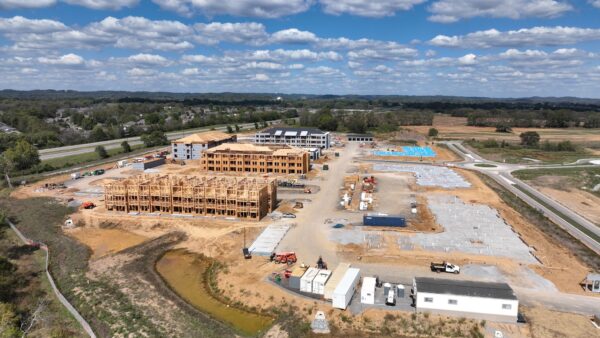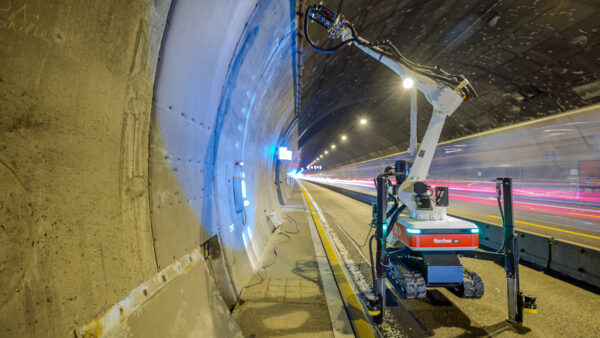18 March 2014
The YMCA in London has teamed up with architects Rogers Stirk Harbour + Partners to develop a solution to London’s acute housing shortage using prefabricated residential pods, reports Rod Sweet
‘It’s fun to stay at the Y – M – C – A!‘ goes the famous Village People song. This has taken on a whole new meaning for London, where the shortage of affordable housing is so acute that local councils are spending millions putting homeless people up in hotels.
The YMCA London South West has come up with an innovative solution that uses portable, prefabricated residential pods on leased urban brownfield sites to provide starter accommodation for young people unable to pay the high costs of private rent.
The so-called “Y:Cube” units are 26-sq-m one-bedroom studios that arrive on site as self-contained units. Each is constructed in the factory with all services ready for plug-and-play assembly.
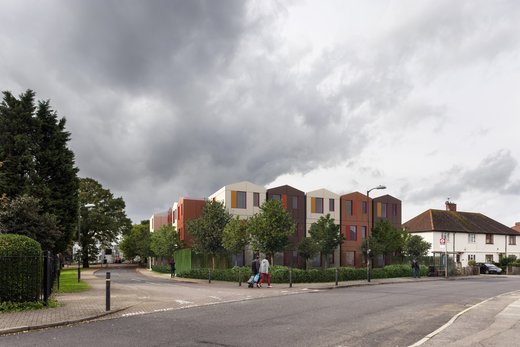
Artist’s render of a Y:Cube scheme in London. When the land lease is up, you just take the pods away (Rogers Stirk Harbour + Partners)
According to architects Rogers Stirk Harbour + Partners (RSH-P), who designed the Y:Cube, each unit is constructed from high quality, eco-efficient materials, primarily timber. Thanks to factory-precision assembly the pods are so well insulated that they require little heating, even in winter months, thus cutting fuel bills for residents.
Lined up to manufacture the units is UK firm Inulshell, formed in 2011 as a subsidiary of SIG Group. Inulshell calls itself an innovator in “large-format closed panel structural timber systems”.
The Y:Cube commercial model is also unique for London, where high land prices have made the social housing business unattractive for developers.
The concept involves putting clusters of between 20 and 40 units on brownfield sites that can be leased for as little as 10 years.
Y:Cube “developers” could be housing charities, registered housing providers and local authorities.
The YMCA says that each scheme will have a range of possible funders including housing associations, banks, charitable trusts, social retail bonds and grants.
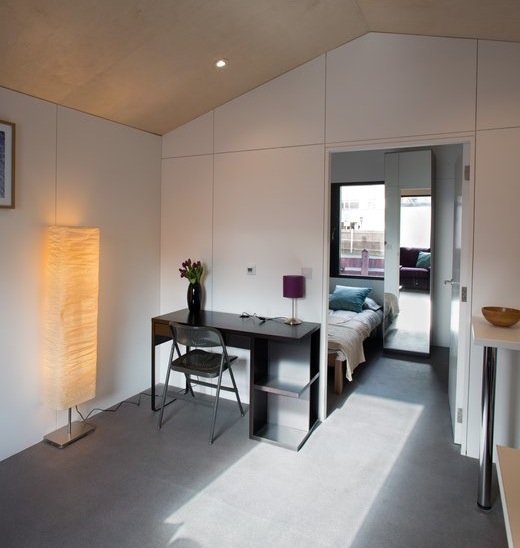
The Y:Cube studio layout is designed for single occupancy, one of the areas of greatest housing demand (Rogers Stirk Harbour + Partners)
At the end of the lease period the Y:Cube units – which have a design life of 60 years – can simply be moved elsewhere.
And because the units can be manufactured in high volumes, they’re much cheaper to build – as much as 40% less than a comparable structure built by traditional methods, the YMCA says.
Andy Redfearn, YMCA London South West’s director of housing and development, told GCR that four charitable trusts have so far expressed an interest in funding Y:Cube schemes. He said investors can expect a return of around 5%.
As for available land in London, Redfearn said the concept would suit a variety of sites, in areas as small as 0.25 acres.
Brownfield sites earmarked for big developments like Crossrail 2 would work as well, he said, giving landowners a chance to lease the land during the long-winded planning process.
The need
Continuing migration to London, reductions in welfare, and the demise of state-funded social housing construction have created a “perfect storm” for people facing homelessness, the YMCA says.
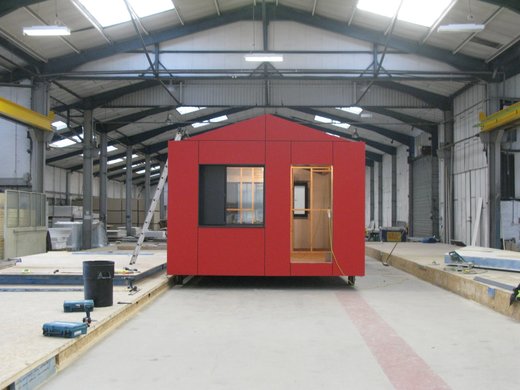
The Y:Cube units are 26-sq-m one-bedroom studios factory pre-assembled with all services ready for plug-and-play assembly (Rogers Stirk Harbour + Partners)
According to government figures, 2,100 homeless families in England were living in emergency bed and breakfast accommodation at the end of September last year – the highest number for a decade.
London’s Westminster council paid out £2m in the first nine months of 2012 just putting up homeless people in hotels.
While the Y:Cube currently targets single people, who appear way down the mile-long social housing waiting lists, Redfearn said the YMCA is now working with RSH-P on designs for two- and three-bedroom units for families.
Councils, he said, are keen to stop throwing cash at B&Bs and spend it instead on assets that are more effective and generate a return.
Meanwhile, the Y:Cube concept is to be tested with a 36-unit scheme planned in Mitcham, south London, by the end of this year. The YMCA will own and manage the scheme.
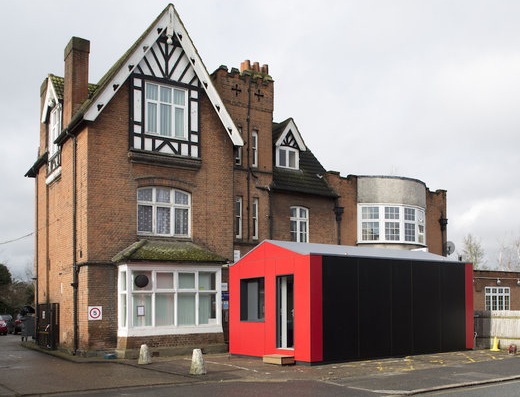
A pilot unit was installed in Wimbledon, south London to test the public’s reaction (Rogers Stirk Harbour + Partners)
Redfearn said the Mitcham scheme shows another advantage of the Y:Cube concept. The site is above a Tube line but, because the structures are lighter than traditional builds and require shallower foundations, that won’t matter.
For this inaugural scheme every resident will be referred by the local authority (London Borough of Merton) or will be a previous user of YMCA’s assisted housing services. Rent will be set at or below the local housing allowance for one bedroom units, making it affordable for people receiving state housing support.
The homeless of London will be hoping Y:Cube takes off.
As the Village People sang of the YMCA, ‘You can get yourself cleaned, you can have a good meal…’ and now, in London anyway, there’s a chance you can also put an affordable roof over your head.


